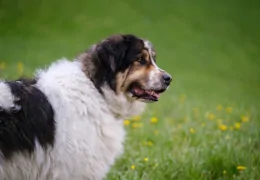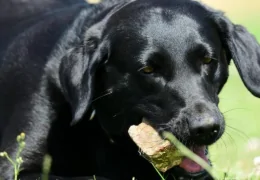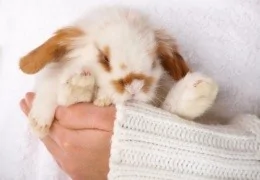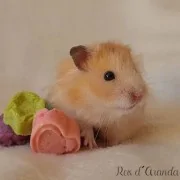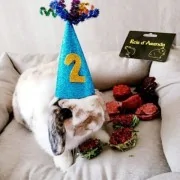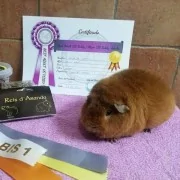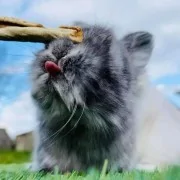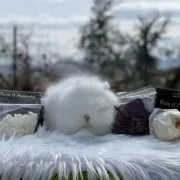The Tornjak originated from genetically homogeneous, almost extinct, indigenous shepherd dogs. These dogs have...
PET FARMS VS ETHICAL BREEDERS
WHAT IS A MACRO PET FARM?
We've all heard, seen or heard about macro farms for cows or pigs through environmental associations or news reports. Places where thousands (or millions) of animals are bred for both human and animal consumption. In some macro farms, the animals live in conditions that are a little more dignified, in others deplorable, but the aim is the same: intensive and continuous breeding.
In the case of pets, we can find the same thing: large "factories" whose destination is a little different from that of chickens or pigs: traditional pet shops (there are other types of shops known as "non-conventional pet shops", which we will talk about in another article).
This type of farms are mostly known for dogs, being great examples the "eastern puppy farms" that breed large quantities of puppies for export; mixed-breed animals of very low quality, with parents with no health tests (hereditary or otherwise), mothers who breed in every heat, with mental illnesses inherited from their parents (such as phobias or aggressiveness) or acquired due to a null or nefarious socialisation work. The icing on the cake is that these puppies are weaned prematurely, which not only worsens the possible mental problems they already have as they are unable to learn from their mother and siblings, but also maximises the chances of them becoming ill or dying prematurely.
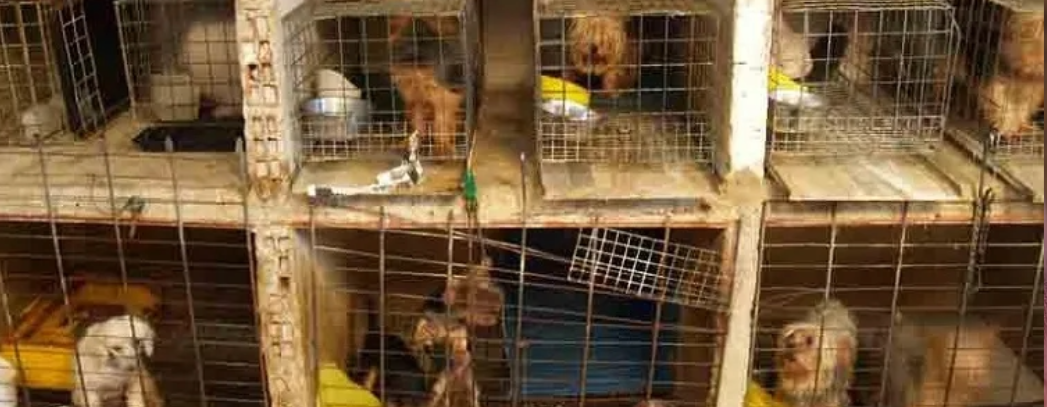
(ABOVE: Dog farm in an Eastern European country)
As far as small pets (rabbits, guinea pigs, hamsters, rats, mice...) are concerned, macro-farms are rarer, but their presence is very strong in society and, as expected, they become the "face" of breeding: the negative face, the negligent face, the face that everyone points to and splashes on those who should not be splashed. It is estimated that in Spain alone a macro pet farm breeds an average of one million animals a year, mongrels, many with hereditary health problems such as malocclusion and poor or no socialisation.
Does anyone really think that you can keep, know, socialise and love more than a million animals and their respective parents in perfect condition? No, you can't.
Nowadays, such giant facilities are very well regarded by the governmental authorities, giving them all the facilities because they attract money to the area (in a way).
ETHICAL BREEDERS
Do ethical breeders exist? Many people claim that no breeding is ethical, but contrary to what these people repeat like a mantra, convinced to the core, ethical breeders do exist, and therefore ethical breeding does exist.
An ethical breeder is an artist, a conservationist, a devotee, a scholar and a slave.
The purpose of breeding animals (whatever the animal in question) is to keep them among us, to allow future generations to enjoy their essence, their beauty, their behaviour and aptitudes. The ethical breeder fell in love one day with a particular breed or species of animal, began to read, to ask questions, to inform himself and, once he shared his life with that breed or species, he felt that the poison of that breed or species got into his bones, it got hooked into his soul and he never let it go again; he is a person who decided to dedicate his effort, money, home and free time to contribute to the very thing he fell in love with.
For the ethical breeder, the welfare of his animals comes first, so he tries to keep them close and, the favourite option at European and American level, is to keep them at home; the vast majority of ethical breeders refuse to keep their animals in the middle of the countryside in an industrial building, to begin with because they are part of their family and, in addition, it is much more complex to take care of them as they are not with them 24/7, they cannot be properly monitored...
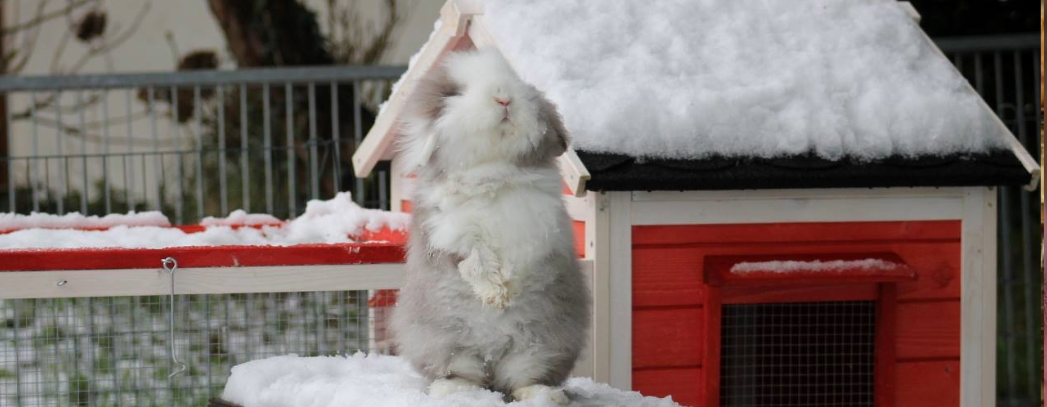
(Teddy Lop dwarf breeding rabbit in France, owned by ethical breeder)
The animals of an ethical breeder live in comfortable, safe and clean facilities (with appropriate measures within the possibilities of each one), parks where they can exercise, contact with the sun, the family, other animals?
The socialisation that is carried out from the moment of birth, the effort to bring forward a pup that has problems (but they do not want it to die without trying everything first), the health tests, the feeding, the affection?
An ethical breeder never exploits his animals, leaving them long periods of rest between births (in the case of rabbits, many of them breed a couple of times in their reproductive life, which goes from 6 months to 4 years) or even breed only once; and, the aim of everything, is not profit (an ethical breeder never gets back the money he invests in a litter or an animal) but to be able to enjoy his animals, to see them grow with love and to be able to make a family happy.
THE IMPORTANCE OF BREED CLUBS OR ASSOCIATIONS IN ETHICAL BREEDING
Breeders' associations and breed clubs are of great importance in ethical breeding. Not only do they denounce socially through information the more than questionable practices of macro-farms, they indicate to their members how they should maintain, care for and carry out their work from a professional point of view, guided by larger associations (mostly German or British): what types of crossbreeding they can or cannot do for the health of the animal, the minimum size that the facilities should have according to the breed, which animals should not be bred and should go only for pets, feeding, health, grooming, ways to identify them...
Breed associations and clubs, at a public level, are magnificent points of information to go to when we are interested in acquiring a new pet (either through purchase or adoption): what specific care do they require, are there any health tests that we should ask the breeder for or that we should consider doing even if our pet is adopted (as prevention), can my lifestyle be adapted to their needs?
Information is key to avoid unpleasant surprises.
ETHICAL BREEDING AND THE PROBLEM OF ABANDONMENT
Worldwide (not only in Spain) there is a major problem regarding the abandonment of pets, with loss of interest, loss of purchasing power or of the carer's health and behavioural problems being some of the most frequent causes.
So, why raise an animal properly if there are many looking for a home?
First of all, we would like to remind you that in Spain there are no official figures for abandoned animals, but they are based on what is declared by the different animal protection services.
Although many people do not want to believe it, ethical breeding is one of the best ways to put an end to abandonment. Why? Because we deal with experienced people, who breed on a very small scale and try to maintain close contact with the families of the animals they themselves have bred.
They are animals that are always delivered identified (the method depends on the type of animal, the first option being the microchip), an identification that goes to a government database (such as RIACA) or private (of a club) linked to the owner's data: name, address, ID card... and, in the case of finding the animal abandoned, it becomes an important starting point to find the person responsible for it.
Health or behavioural problems are almost non-existent (leaving aside that the animal may suffer psychological negligence once they are handed over, which may alter the work done by the breeder), precisely because an ethical breeder, unlike a pet farm, refuses to breed with any type of animal: if it has a health problem that is transmissible to its offspring, no matter how beautiful it is, it is no good.
And finally, the family is always reminded (by word of mouth or by contract) that if they have to part with the animal for whatever reason (especially from a financial and health point of view) they must return it to the breeder so that he can find it a home or, failing that, tell him who the animal is going to live with from now on and give him all the details of that person so that he can change those in the register. What happens if he does not do this and the new second owner commits a major negligence? The problem is for the first owner, because he/she is the legal owner of the animal.
So, do shelters and ethical breeders have to be at odds with each other? No, not at all. Both like animals, both are interested in their welfare; it is quite complex (not impossible) to find an abandoned animal of a certified breed (with pedigree), coming from an ethical breeder and even more so to identify its origin.
As an interesting fact, more than one breeder of small pets (rabbits, guinea pigs, rats...) donates at the end of the year a percentage of their sales (around 10% of annual profits) to one or more local animal shelters to continue their wonderful work, helping them with the bills resulting from people's irresponsibility.
THE OWNER IS SOLELY RESPONSIBLE
We live in an age where information (good or bad, but accessible) is very easy to access, but there is one curious thing that, when it comes to certain fashionable dog breeds and small pets, remains the same no matter how much time passes: people don't inform themselves. It is as if they are too cramped or too lazy to pick up a book, visit a breed club's website or go to pet shows and fairs to find out more about the needs and characteristics of the animal they like so much.
It is a beautiful animal that steals all eyes. It is a talented animal that we have seen perform a thousand and one tricks on YouTube. It is an imposing animal that makes us feel safe. It's an adorable, cuddly animal that we fall in love with on Instagram.
But what is the B side of all that? How should I keep it so that it is beautiful and healthy? What should I do to train it? What happens if this imposing and protective animal gets out of hand and becomes, through MY negligence, a danger?
People need to be educated from a professional point of view: veterinarians, breeders, handlers....
When you commit a negligence and nobody has informed you of anything (which happens in many traditional pet shops, whose employees do not have any kind of knowledge of weight to offer to the client; let's not talk about macro-farms...) you are ignorant but, if you have been properly informed in words and in writing, and you commit the negligence because you don't care, you are no longer ignorant, you are incompetent.
The future of true animal welfare is the CORRECT education of the people (especially children), the joint work of protective associations and associations of ethical breeders and, of course, the recognition of the benefits of ethical breeding on a small scale (family) as opposed to large factories.
Leave a comment
Log in to post comments
Comments
Siempre con responsabilidad
By: Soraya Luna On 05/15/2024Reconozco que yo soy más de adoptar y que siempre invito a los demás a hacerlo porque le salvas la vida a un animal, pero también es verdad que es raro que a nuestra protectora o la de mis conocidos lleguen animales criados en un criador bueno, siempre van identificados y, si les contactan, los recogen ellos mismos o colaboran con nosotros para encontrarlos un nuevo hogar. Lo que hay que cerrar son estas granjas de m* que los tratan como basura, no castigar a quien los cría con cariño. Pero, lo más importante, es que los adoptantes y compradores lo hagan con responsabilidad, si la gente fuera responsable no habría abandono.
Family breeding
By: Ron Warden On 05/11/2024A very correct article, the future of pets is family breeding, not everything depends on having or not the license from the city council (money, money and money), if family breeding disappears only pet farms will be left!
Cuanta razón...
By: Nadine Mei L. On 05/11/2024Se nota que este blog lo lleva gente profesional que no copia-pega de otros blogs ni tiene el cerebro comido por el "no compres, adopta", cualquier forma de adquisición responsable es correcta, he visto protectoras que no querían saber nada de "sus" animales si el dueño estaba en una situación dificil y criadores que se han volcado en buscarles una nueva casa o se los han llevado a la suya propia, los han castrado y buscado una nueva familia.
SUPER IMPORTANT!
By: Danny On 05/11/2024It is very important to know the difference between good breeders and bad breeders, if only good breeders would breed, there would be much less abandonment. I hope that one day the animal groups will learn and fight against what they have to fight against, breeding is not bad, what is bad is not doing it well.
Gran artículo
By: Sylvia On 05/02/2024Yo compré a mi bebenejo (mini lop) en un criador que va a exposiciones, me informó de todo, está sanísimo (tiene 8 años), nuca se ha puesto enfermo y, con cualquier duda, puedo escribirle o llamarle y está encantado de asesorarme. Antes tuve un conejo de tienda que me decían que era un toy y se me murió a los tres días porque o era muy pequeño o estaba lleno de parásitos.
The breeder = The best option
By: Steve On 05/02/2024The best option is always to opt for a family breeder who goes to shows, cheap is always expensive and sadly there are too many farms or "pseudo breeders" who should just dig themselves into a hole and leave the animals.
If you don't want to spend money or you don't care about the breed, adopt, but always buy from a specialised breeder.






